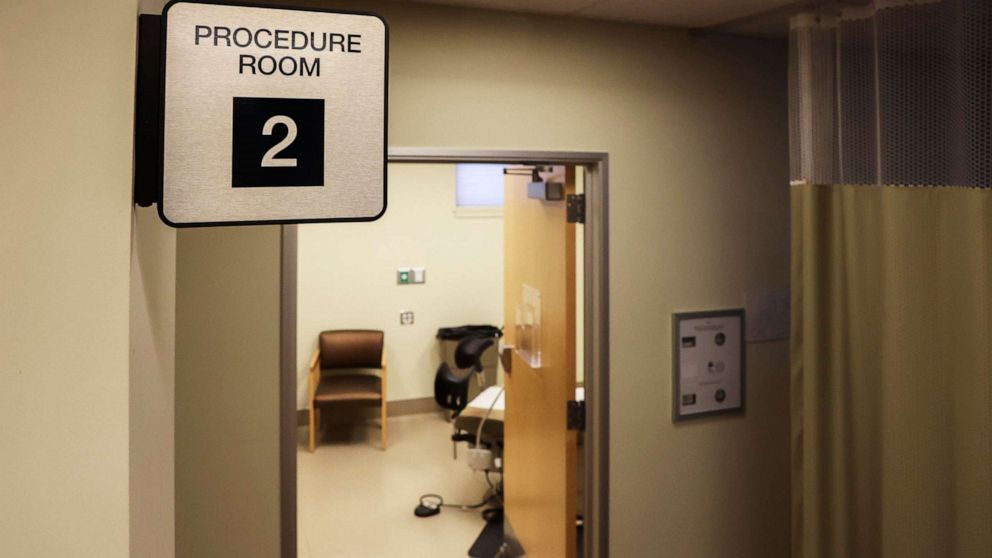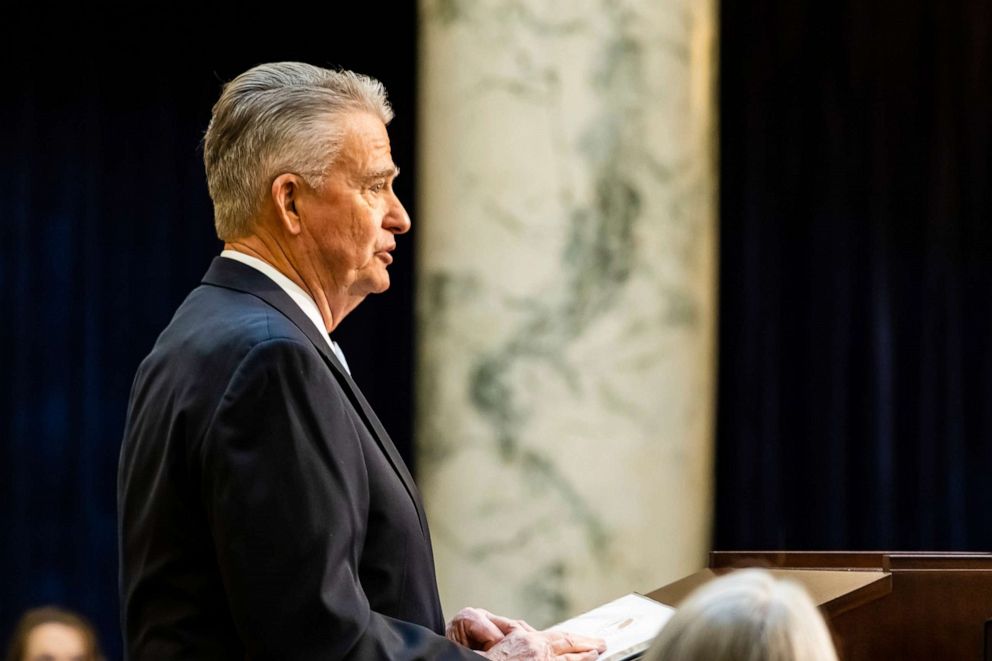Idaho abortion ban temporarily blocked weeks before set to take effect
The law bans abortions after six weeks.
The Idaho Supreme Court has temporarily blocked a new law that bans nearly all abortions in the state while a legal challenge plays out in court.
The court issued a stay on implementation of the bill, set to go into effect on April 22, in a ruling on Friday, more than a week after Planned Parenthood filed a lawsuit seeking to reverse the restrictive abortion law.
The state has until April 28 to respond to the court.
The law bans abortions once cardiac activity in a fetus is detected, which happens at approximately six weeks of pregnancy. Many women are unaware at six weeks that they are pregnant.
The suit was filed on March 30 in Idaho's Supreme Court on behalf of Planned Parenthood Great Northwest, Hawai'i, Alaska, Indiana, Kentucky and Dr. Caitlin Gustafson, a health care provider who performs abortions at Planned Parenthood clinics, according to court documents.
The bill was signed by Gov. Brad Little on March 23, making Idaho the first state to model legislation after Texas' abortion ban.
"It should be clear to everyone that the Idaho state legislature intentionally abandoned the ordinary rule of law when they passed this six-week abortion ban. Then the governor joined their effort to deny his constituents their constitutional rights when he signed the abortion ban into law -- despite his own acknowledgement that it was wrong," Alexis McGill Johnson, president and CEO of Planned Parenthood Federation of America, said in a press release announcing the legal challenge.

The law would also allow the father, grandparents, siblings, uncles or aunts of the fetus to sue a medical provider that performs the procedure and collect a reward of at least $20,000 for a successful claim filed within four years of an abortion, according to Planned Parenthood.
The law's "enforcement mechanism and substance are blatantly unconstitutional, so much so that Idaho's Attorney General's Office released an opinion to this effect, and the Governor emphasized similar concerns upon signing," the lawsuit states.
In a letter to Janice McGeachin, the lieutenant governor and president of the state's senate, Little criticized the bill, saying, "I stand in solidarity with all Idahoans who seek to protect the lives of preborn babies."
He then added, "While I support the pro-life policy in this legislation, I fear the novel civil enforcement mechanism will in short order be proven both unconstitutional and unwise."
In its lawsuit, Planned Parenthood asked the court to rule that the bill is "unlawful and unenforceable" and forbid Idaho courts from implementing civil cases as the bill allows.
Without intervention from the court, the law would go into effect, "wreaking havoc on this State's constitutional norms and the lives of its citizens," according to the lawsuit.
"The abortion ban blatantly undermines patients' right to privacy. It also improperly and illegally delegates law enforcement to private citizens, violating the separation of powers and allowing plaintiffs without injury to sue, in violation of the Idaho Constitution," Planned Parenthood said.
Added Rebecca Gibron, the interim CEO of Planned Parenthood Great Northwest, Hawai'i, Alaska, Indiana, Kentucky: "This law is a cruel overreach by politicians so intent on controlling the lives of their constituents that they're willing to compromise our constitutional rights and compromise our health and safety, all in order to ban abortion."

The lawsuit requests emergency relief by April 21 to prevent the implementation of the abortion ban before it becomes law.
"Unless this abortion ban is stopped, Idahoans will watch in real time as their government strips them of the very rights they were sworn to protect. Everyone deserves to make their own decisions about their bodies, families, and lives — and we're going to keep fighting to make sure that is a reality," McGill Johnson said.




